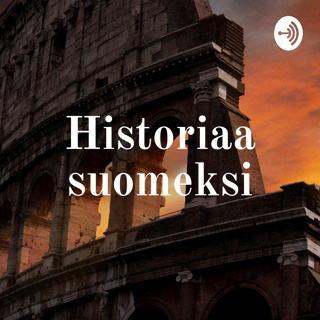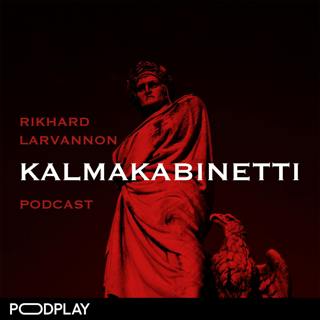
Thomas Hardy's Poetry
Melvyn Bragg and guests discuss Thomas Hardy (1840 -1928) and his commitment to poetry, which he prized far above his novels. In the 1890s, once he had earned enough from his fiction, Hardy stopped writing novels altogether and returned to the poetry he had largely put aside since his twenties. He hoped that he might be ranked one day alongside Shelley and Byron, worthy of inclusion in a collection such as Palgrave's Golden Treasury which had inspired him. Hardy kept writing poems for the rest of his life, in different styles and metres, and he explored genres from nature, to war, to epic. Among his best known are what he called his Poems of 1912 to 13, responding to his grief at the death of his first wife, Emma (1840 -1912), who he credited as the one who had made it possible for him to leave his work as an architect's clerk and to write the novels that made him famous.WithMark Ford Poet, and Professor of English and American Literature, University College London.Jane Thomas Emeritus Professor of English at the University of Hull and Senior Visiting Research Fellow at the University of LeedsAnd Tim Armstrong Professor of Modern English and American Literature at Royal Holloway, University of LondonProducer: Simon Tillotson
13 Tammi 202250min

Fritz Lang
Melvyn Bragg and guests discuss the Austrian-born film director Fritz Lang (1890-1976), who was one of the most celebrated film-makers of the 20th century. He worked first in Weimar Germany, creating a range of films including the startling and subversive Mabuse the Gambler and the iconic but ruinously expensive Metropolis before arguably his masterpiece, M, with both the police and the underworld hunting for a child killer in Berlin, his first film with sound. The rise of the Nazis prompted Lang's move to Hollywood where he developed some of his Weimar themes in memorable and disturbing films such as Fury and The Big Heat. With Stella Bruzzi Professor of Film and Dean of Arts and Humanities at University College LondonJoe McElhaney Professor of Film Studies at Hunter College, City University of New YorkAndIris Luppa Senior Lecturer in Film Studies in the Division of Film and Media at London South Bank UniversityProducer: Simon Tillotson
30 Joulu 202155min

The Hittites
Melvyn Bragg and guests discuss the empire that flourished in the Late Bronze Age in what is now Turkey, and which, like others at that time, mysteriously collapsed. For the next three thousand years these people of the Land of Hatti, as they called themselves, were known only by small references to their Iron Age descendants in the Old Testament and by unexplained remains in their former territory. Discoveries in their capital of Hattusa just over a century ago brought them back to prominence, including cuneiform tablets such as one (pictured above) which relates to an agreement with their rivals, the Egyptians. This agreement has since become popularly known as the Treaty of Kadesh and described as the oldest recorded peace treaty that survives to this day, said to have followed a great chariot battle with Egypt in 1274 BC near the Orontes River in northern Syria. WithClaudia Glatz Professor of Archaeology at the University of GlasgowIlgi Gercek Assistant Professor of Ancient Near Eastern Languages and History at Bilkent UniversityAndChristoph Bachhuber Lecturer in Archaeology at St John’s College, University of OxfordProducer: Simon Tillotson
23 Joulu 202152min

A Christmas Carol
Melvyn Bragg and guests discuss Charles Dickens' novella, written in 1843 when he was 31, which has become intertwined with his reputation and with Christmas itself. Ebenezer Scrooge is the miserly everyman figure whose joyless obsession with money severs him from society and his own emotions, and he is only saved after recalling his lonely past, seeing what he is missing now and being warned of his future, all under the guidance of the ghosts of Christmases Past, Present and Yet To Come. Redeemed, Scrooge comes to care in particular about one of the many minor characters in the story who make a great impact, namely Tiny Tim, the disabled child of the poor and warm-hearted Cratchit family, with his cry, "God bless us, every one!"WithJuliet John Professor of English Literature and Dean of Arts and Social Sciences at City, University of LondonJon Mee Professor of Eighteenth-Century Studies at the University of YorkAndDinah Birch Pro-Vice-Chancellor for Cultural Engagement and Professor of English Literature at the University of LiverpoolProducer: Simon Tillotson
16 Joulu 202156min

The May Fourth Movement
Melvyn Bragg and guests discuss the violent protests in China on 4th May 1919 over the nation's humiliation in the Versailles Treaty after World War One. China had supported the Allies, sending workers to dig trenches, and expected to regain the German colonies on its territory, but the Allies and China's leaders chose to give that land to Japan instead. To protestors, this was a travesty and reflected much that was wrong with China, with its corrupt leaders, division by warlords, weakness before Imperial Europe and outdated ideas and values. The movement around 4th May has since been seen as a watershed in China’s development in the 20th century, not least as some of those connected with the movement went on to found the Communist Party of China a few years later.The image above is of students from Peking University marching with banners during the May Fourth demonstrations in 1919.With Rana Mitter Professor of the History and Politics of Modern China and Fellow of St Cross College, University of OxfordElisabeth Forster Lecturer in Chinese History at the University of SouthamptonAnd Song-Chuan Chen Associate Professor in History at the University of WarwickProducer: Simon Tillotson
9 Joulu 202152min

The Battle of Trafalgar
Melvyn Bragg and guests discuss the events of 21st October 1805, in which the British fleet led by Nelson destroyed a combined Franco-Spanish fleet in the Atlantic off the coast of Spain. Nelson's death that day was deeply mourned in Britain, and his example proved influential, and the battle was to help sever ties between Spain and its American empire. In France meanwhile, even before Nelson's body was interred at St Paul's, the setback at Trafalgar was overshadowed by Napoleon's decisive victory over Russia and Austria at Austerlitz, though Napoleon's search for his lost naval strength was to shape his plans for further conquests.The image above is from 'The Battle of Trafalgar' by JMW Turner (1824).WithJames Davey Lecturer in Naval and Maritime History at the University of ExeterMarianne Czisnik Independent researcher on Nelson and editor of his letters to Lady HamiltonAndKenneth Johnson Research Professor of National Security at Air University, AlabamaProducer: Simon Tillotson
2 Joulu 202151min

Plato's Gorgias
Melvyn Bragg and guests discuss one of Plato's most striking dialogues, in which he addresses the real nature of power and freedom, and the relationship between pleasure and true self-interest. As he tests these ideas, Plato creates powerful speeches, notably from Callicles who claims that laws of nature trump man-made laws, that might is right, and that rules are made by weak people to constrain the strong in defiance of what is natural and proper. Gorgias is arguably the most personal of all of Plato's dialogues, with its hints of a simmering fury at the system in Athens that put his mentor Socrates to death, and where rhetoric held too much sway over people. WithAngie Hobbs Professor of the Public Understanding of Philosophy at the University of SheffieldFrisbee Sheffield University Lecturer in Classics and Fellow of Downing College, University of CambridgeAndFiona Leigh Associate Professor in the Department of Philosophy at University College LondonProducer: Simon Tillotson
25 Marras 202150min

The Decadent Movement
Melvyn Bragg and guests discuss the British phase of a movement that spread across Europe in the mid-19th and early 20th centuries. Influenced by Charles Baudelaire and by Walter Pater, these Decadents rejected the mainstream Victorian view that art needed a moral purpose, and valued instead the intense sensations art provoked, celebrating art for art’s sake. Oscar Wilde was at its heart, Aubrey Beardsley adorned it with his illustrations and they, with others, provoked moral panic with their supposed degeneracy. After burning brightly, the movement soon lost its energy in Britain yet it has proved influential.The illustration above, by Beardsley, is from the cover of the first edition of The Yellow Book in April 1894.WithNeil Sammells Professor of English and Irish Literature and Deputy Vice Chancellor at Bath Spa UniversityKate Hext Senior Lecturer in English Literature at the University of ExeterAndAlex Murray Senior Lecturer in English at Queen’s University, BelfastProducer: Simon Tillotson
18 Marras 202151min






















